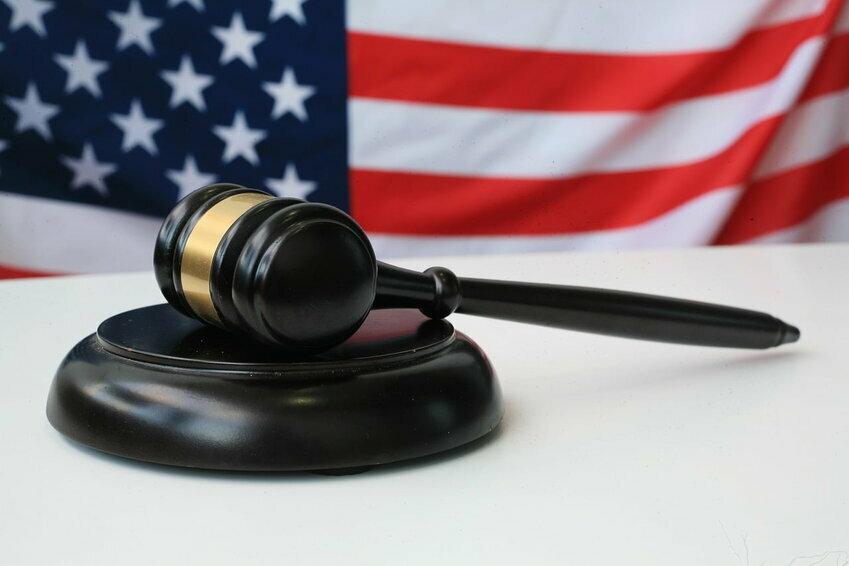
The carbon offset program is under the microscope now that plaintiffs are suing Delta Air Lines for allegedly making “false and misleading” promises regarding its carbon neutrality. The suit claims it is a de facto marketing scheme to sell more plane tickets, noting green products go for a premium, which eco-conscious consumers will pay.
There’s a broader point: analysts have intensely scrutinized the voluntary carbon credit market for inflating the rainforests they conserve. In this case, Delta vowed to go net zero in 2020, allocating $1 billion to the effort over 10 years. Part of the money will go to preserving rainforests, wetlands, and grasslands.
It's a noble cause – one supported by the Intergovernmental Panel on Climate Change, which says that deforestation contributes to 15% of global carbon emissions and that natural solutions will significantly reduce atmospheric carbon dioxide. Indeed, trees suck CO2 from the atmosphere.
Delta says its priorities are in order and calls the lawsuit bogus.
“This lawsuit is without legal merit,” a spokesman told the Guardian newspaper. "Delta is a vigorous advocate for more sustainable aviation, adopting industry-leading climate goals as we work towards achieving net-zero carbon emissions by 2050. Delta committed to carbon neutrality in March 2020, and since 31 March 2022, has fully transitioned its focus away from carbon offsets toward decarbonization of our operations, focusing our efforts on investing in sustainable aviation fuel, renewing our fleet for more fuel-efficient aircraft, and implementing operational efficiencies.”
The Guardian, Die Zeit, and SourceMaterial say the voluntary market overstates its impact. Organizations estimate how many trees they will save, all audited by "Verra-approved" third parties. But the threat of potential forest loss is exaggerated by 400%. The research shows that a few of Verra’s projects prevented trees from being cut down.
Verra approves three out of every four voluntary carbon projects. Verra, whose chief executive just retired, says the research “was not produced by scientists but instead by journalists who used a non-transparent process.”
This writer is the editor at large for the Coalition for Rainforest Nations, representing 53 countries that issue sovereign credits, bypassing the voluntary carbon credit market.
The World Economic Forum and Bain & Co. surveyed 137 companies, finding that less than 20% planned to buy carbon credits. The January 2023 report says companies need “precise information” to make good decisions. However, 55% of the businesses cited a lack of transparency, 55% referenced varying carbon credit quality, and 50% noted the complex web of standards. Meantime, 40% of them worried about “reputational risks” – a public backlash about investing in iffy projects at the expense of creating operational efficiencies.
“The transparency of the market urgently needs to be improved,” says the study. “Recent reports suggest that in some cases significant shares of end-user costs do not reach the projects and communities that so acutely need financial support."
The demand for forestry-related carbon credits is down, note Trove Research and AlliedOffsets, from 380 million in 2021 to 359 million in 2022. That has led to a drop in carbon prices, projected at $6.50 a ton this year.
Most companies cannot achieve carbon neutrality by generating all their electricity using renewable energy or increasing their sustainability strategies. They have to use tools such as power-purchase agreements and buy carbon credits – things that can offset their emissions. However, the carbon credit market is complex, and companies may not understand how nuanced it is.
“The voluntary carbon offset market cannot meaningfully guarantee carbon neutrality from a company in the way it’s currently being operated. The market is replete with severe methodological errors that appear both intentional and unintentional. In our opinion, it’s frankly reckless to predicate a company’s ESG strategy on climate change on the basis of the purchase of these offsets,” says plaintiff attorney Jonathan Haderlein, in the Guardian story.
“This is more than a climate change case,” he adds. "This is also a business case. People are paying more for these greener products. If a company like Delta is raking that premium in by claiming they do it first and then doing a huge advertising blitz to try to get people flying again, we think that’s unfair to other companies that are buying higher-quality offsets or doing far better sustainability. And frankly, unfair to consumers.”
Filing a lawsuit is easy, but getting it past a judge is rigorous. If a judge agrees the case has merit, it would then go into a lengthy discovery process before it would get heard by a jury. In the meantime, cases like this will damage the carbon credit market. The lawsuit was filed in federal court in California.
Generally, the airline industry contributes about 2% of all global greenhouse gas emissions – a small amount that could spike if the sector’s attempts to cut carbon levels are unsuccessful.
The International Air Transport Association says sustainable aviation fuels can reduce airline emissions by 65% by 2050, although those fuels comprise less than 1% of the industry’s energy usage today. Combined with a workable carbon offset program, the two could cut the industry’s carbon levels by 80%.